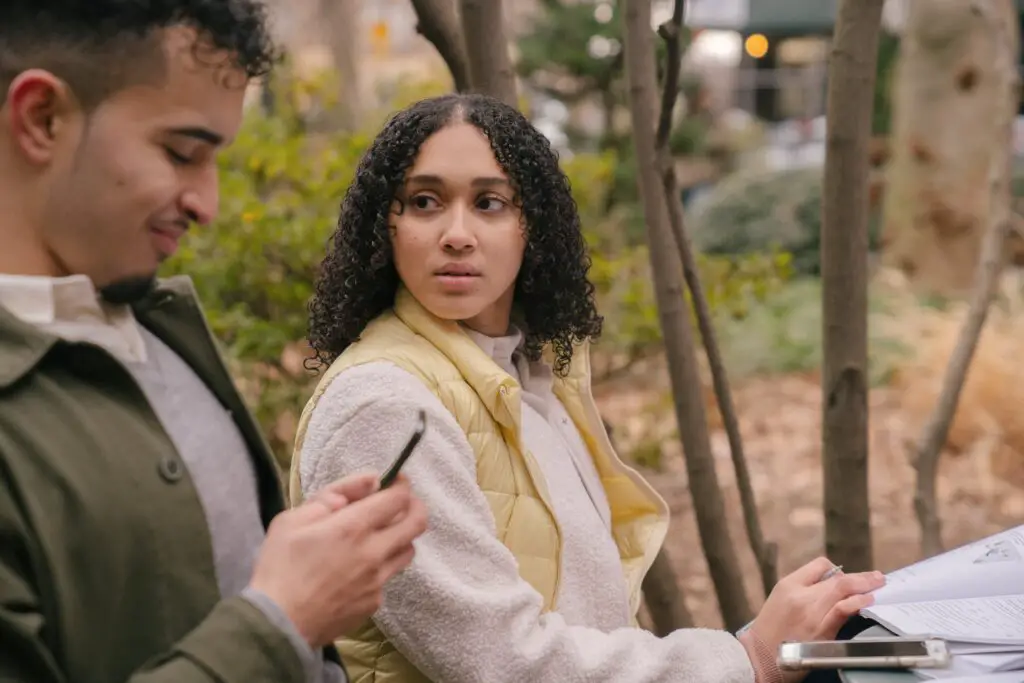Navigating the Silent Neighbors:
Signs Your Presence May Not Be Welcome
In the tapestry of suburban life, where white picket fences serve as borders and neatly trimmed lawns signal societal harmony, the delicate dance of neighborly relations can be both a source of comfort and a potential minefield. As we weave our lives into the fabric of a community, it becomes crucial to decipher the subtle nuances of our neighbors’ sentiments. But what if the warmth you envision is met with a frosty reception? How do you discern the signs that your neighbors might not be extending the olive branch of camaraderie? In this exploration, we delve into the unspoken cues, the hushed whispers of discontent that may indicate your neighbors aren’t exactly penning sonnets about your presence. Brace yourself for a journey into the realm of social subtleties and silent disapproval.

Signs Your Neighbors Don’t Like You
1. The Invisible Fence of Politeness:
You’ve exchanged pleasantries on more than one occasion, yet the invitations never seem to extend beyond the realm of politeness. Your neighbor may be cordial during those serendipitous encounters in the driveway or the mailbox, but if the warmth doesn’t extend into invitations for coffee or barbecues, it might be a signal that your presence isn’t as eagerly welcomed as you might have hoped.
2. The Elusive Eye Contact:
In a world brimming with visual communication, the absence of eye contact can be a powerful indicator. If your neighbors consistently divert their gaze when you pass by or avoid locking eyes during community gatherings, it might be a subtle signal of discomfort or disinterest. A lack of sustained eye contact can be the unspoken language of reservation, signaling that the connection you seek may not be reciprocated.
3. The Ghost Town Greetings:
Neighborhoods thrive on the exchange of pleasantries – a simple “hello” or a friendly wave. However, if your attempts at neighborly greetings are met with cold shoulders or swift retreats into the safety of closed doors, it’s time to pay attention. A community that thrives on shared connections may be subtly suggesting that your presence isn’t seamlessly woven into the social fabric.
4. The Whispering Hedges:
Lush hedges and white picket fences might be picturesque, but they can also serve as clandestine barriers. If conversations hush to a whisper when you approach or if neighbors seem to scatter like leaves in the wind, it could be a sign that your presence is a topic of hushed discussions. The whispering hedges may be hiding more than just chirping birds; they could be concealing the murmurings of discontent.
5. The Lawn-Length Stigma:
In the world of suburbia, the length of one’s lawn is akin to a statement of societal participation. If your neighbors meticulously manicure their lawns and yours stands in stark contrast as an unruly wilderness, it might be perceived as a visual representation of nonconformity. The disapproving glances cast upon your lawn may translate into a wider sentiment that your lifestyle choices don’t align with the community’s unspoken standards.
6. The Disappearing Acts:
Every neighborhood has its share of communal gatherings – be it impromptu barbecues, block parties, or book club meetings. If you find yourself consistently excluded from these gatherings or only hear about them in passing, it could be a sign that your neighbors prefer to maintain a social distance. The intentional omission from group activities speaks louder than any overt expression of disapproval.
7. The Parking Predicament:
In the intricate dance of suburban parking, the unspoken rules can be as nuanced as a waltz. If your neighbors consistently park their cars strategically to avoid proximity to yours or if they seem to stake out specific spaces to ensure a buffer zone, it may not be a mere coincidence. The parking predicament could be an indication that your presence is perceived as an intrusion into their personal space.
8. The Unanswered Invitations:
You extend invitations for gatherings or events, but the responses are as scarce as a desert oasis. If your neighbors consistently decline or offer vague excuses, it may be a sign that your company isn’t as eagerly sought after as you might have assumed. Unanswered invitations can be a polite way of signaling a desire for distance.
9. The Social Media Silence:
In the age of digital interconnectedness, social media serves as a virtual extension of our communities. If your neighbors are conspicuously absent from your friend list or display a notable silence when it comes to reacting to your posts, it could be indicative of a deliberate choice to maintain a digital distance. The lack of virtual engagement may mirror their sentiments in the physical realm.
10. The Subtle Alterations:
Pay attention to the subtle changes in behavior, demeanor, or routines of your neighbors. If they once openly shared details about their lives but now respond with vague answers or if they seem to alter their routines to avoid intersecting with yours, these subtle alterations may be indicative of a desire to maintain a discreet distance.
Conclusion
As we navigate the intricate tapestry of neighborhood dynamics, it’s imperative to read between the lines of polite exchanges and subtle gestures. The signs that your neighbors may not be entirely enamored with your presence can manifest in nuanced ways. From the subtle avoidance of eye contact to the unspoken exclusion from communal gatherings, decoding these cues requires a keen awareness of the unspoken language of social dynamics. In the dance of suburban camaraderie, the symphony of neighborly relations may not always play in harmonious chords. It’s in these moments of silent disapproval that we must hone our perception and decide whether to gracefully retreat or attempt to bridge the gaps that have quietly emerged.
